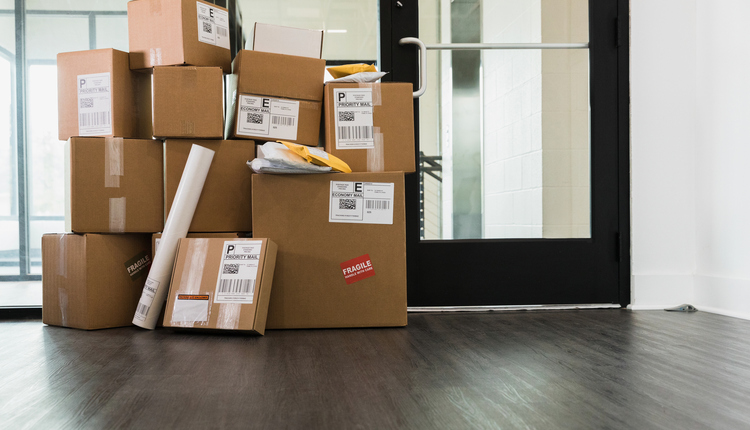American Freightways, a scheduled for-hire carrier of less-than-truckload (LTL) shipments of general commodities, has been using dock-mounted computer terminals since 1993, the year the company adopted a cross-docking process. The terminals, equipped with barcode scanners, are mounted between dock doors at many American Freightways customer centers and are the centerpiece of a cross-dock application that has helped automate the document-handling process. According to David Green, American Freightways purchasing coordinator, the benefits of this are nothing less than dramatic. Barcodes on both the truck and the shipment are scanned for shipment identification, manifest information and trailer number information, and the terminals transmit this to the central office, reducing data entry time by a full nine minutes over a manual process.
The problem was the warranties on the existing terminals had expired, making American Freightways responsible for maintenance and upkeep. American Freightways, which serves all points in 30 mid-Atlantic, Midwestern, Southeastern and Southwestern states, had also outgrown its existing systems. In an effort to reduce the cost of updating and maintaining its terminals, American Freightways decided to explore other options.
Finding a WLAN system
After a diligent search, the company turned to Kinetic Computer Corporation, a vendor of rugged, wireless computer products for warehousing and vehicle applications.
American Freightways chose a wireless LAN-based PC/Rover to improve the efficiency of its dock operations and provide instant tracking of customer freight. Combining a powerful Intel Pentium board with flexible WLAN capabilities, the PC/Rover offers a tethered barcode scanner, solid state memory and a flat-panel display with a resistive touch screen. The terminals communicate via RF with the terminals server that contains American Freightways proprietary software called ACCOPS (American Customer Center Operations System).
High durability less cost
Green explains the thinking that went into the purchasing decision. Kinetic offered excellent warranties and superior customer service. Yet the two primary considerations were the lower cost of the units from both the installation and maintenance perspectives and the units durability.
In our business, durability is a major consideration. The PC/Rover terminals can survive both severe outdoor conditions and constant operator usage of the touch screen. This was extremely important to us. notes Green.
The WLAN capabilities were also important. Green notes, Installing the Kinetic units amounted to about half the cost of installing competing units. The PC/Rover terminals also provided faster processing of information and require less maintenance.
According to Green, All the companies in the review process had the opportunity to build a prototype to meet our requirements. Kinetic built a system that was superior, yet the closest to our current system. It was exactly what we were looking for, Green explains. It was the same application, just running on different hardware.
American Freightways also conducted competitive performance tests, including substantial durability testing. The Kinetic terminals outperformed all of the competitors.
Looking to the future
The Kinetic PC/Rover terminals are currently up and running at eight of the companys customer centers and will be installed at two more centers in the near future. Based on the PC/Rovers outstanding performance, were actually considering a complete overhaul with Kinetic products, Green adds.
Vinit Nijhawan is the founder, president and chairman of the board of Kinetic Computer Corporation, founded in 1992. He is responsible for providing the strategic direction of the company, initiating product development and overseeing operations. He holds a BA SC in Electrical Engineering from the University of Waterloo in Waterloo, Canada. Contact him at 978-439-0500 or visit www.kin.com.





